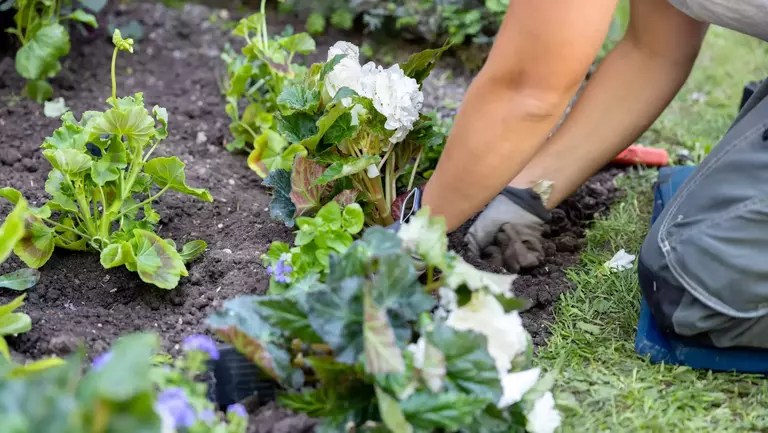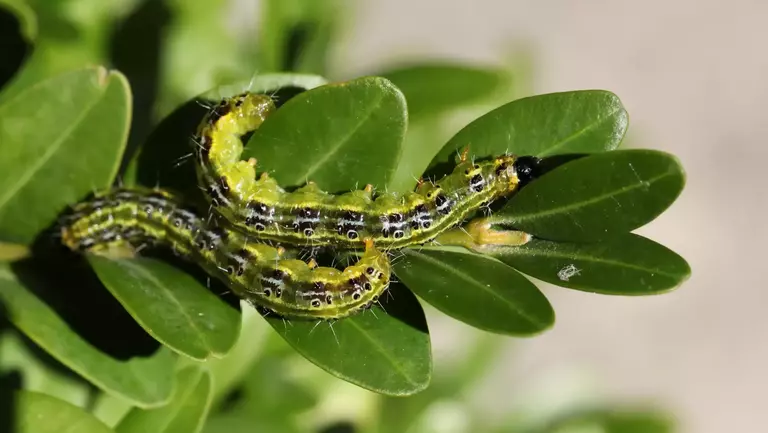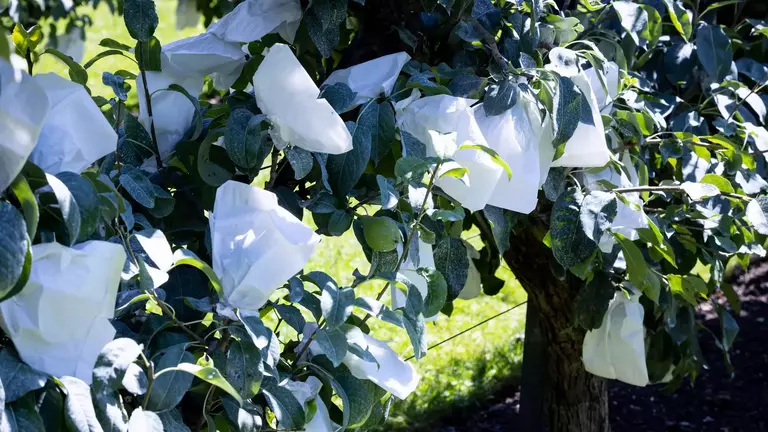Eliminating Phytosanitary Products and Implementing Biological Control
The Luxembourg Garden has long been committed to limiting or eliminating the use of plant protection products. Since the 1990s, biological control has been practiced in its greenhouses. As for chemical weedkillers, they have been banned since the 2000s.
Today, only biological pest control products or those approved for organic agriculture are still used, in strict compliance with the "Labbé" law. Systemic treatments have been abandoned. For example, the treatment of shrub beds with sulphur to combat powdery mildew, which is usually carried out at the end of winter and is in fact approved for organic farming, has been suspended. The only treatments that remain are targeted and concern only plants that form the garden's signature plant heritage.

Targeted Actions
The Garden is fighting more particularly against the boxwood moth, which threatens its boxwood. Its caterpillars are extremely voracious and have been causing devastation, especially in historical gardens, in recent years. Pheromone traps scattered in the shrub beds attract the adults. The caterpillars are then destroyed using a bacterium, Bacillus thuringiensis kurstaki, spread in the spring.
In general, elbow grease is the rule, as with the prestigious lawns located along the garden's monumental central axis (Palace-Observatory), which are weeded by hand.

Special Attention to the Orchard
The orchard houses a national collection of old varieties of apples and pears, and enjoys careful and targeted care. Pheromone traps help regulate codling moths (the larvae of which burrow into the fruit). As for fighting pathogenic fungi, this is done using potassium bicarbonate, clay, or sulphur. Finally, when attacks by destructive insects are such that they cannot be regulated by gentle means, the insecticide treatments that are used are approved for organic farming, and are only applied to the most affected plants.
This all-organic practice obviously relies on the gardeners' skills. They have become masters in the art of manual plant cleaning, for instance, using cotton swabs soaked in alcohol or removing the most affected branches. They also apply passive protection methods, like bagging fruits to prevent "wormy fruits" (codling moths, hoplocampes, etc.)

Changing the Species Present in the Garden
But these efforts are not always sufficient. Five years ago, for example, the garden mourned the loss of many of its privets. Today, it is the boxwood patterns facing a new disease (Cylindrocladium and Volutella) for which there is no effective biological solution. Therefore, in the absence of treatment, the garden has begun to replace these traditional varieties with tolerant ones, or even with substitute species such as dwarf Euonymus (Euonymus japonicus 'Microphyllus'), making a discreet but real change to the garden's range of plants.
